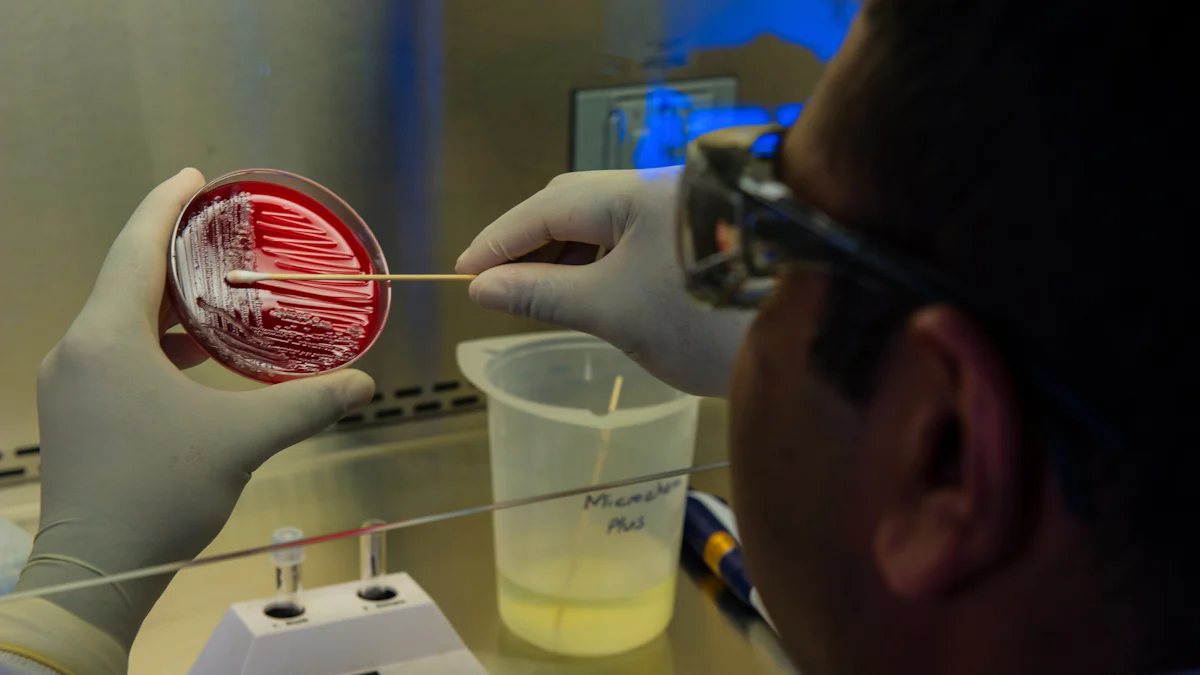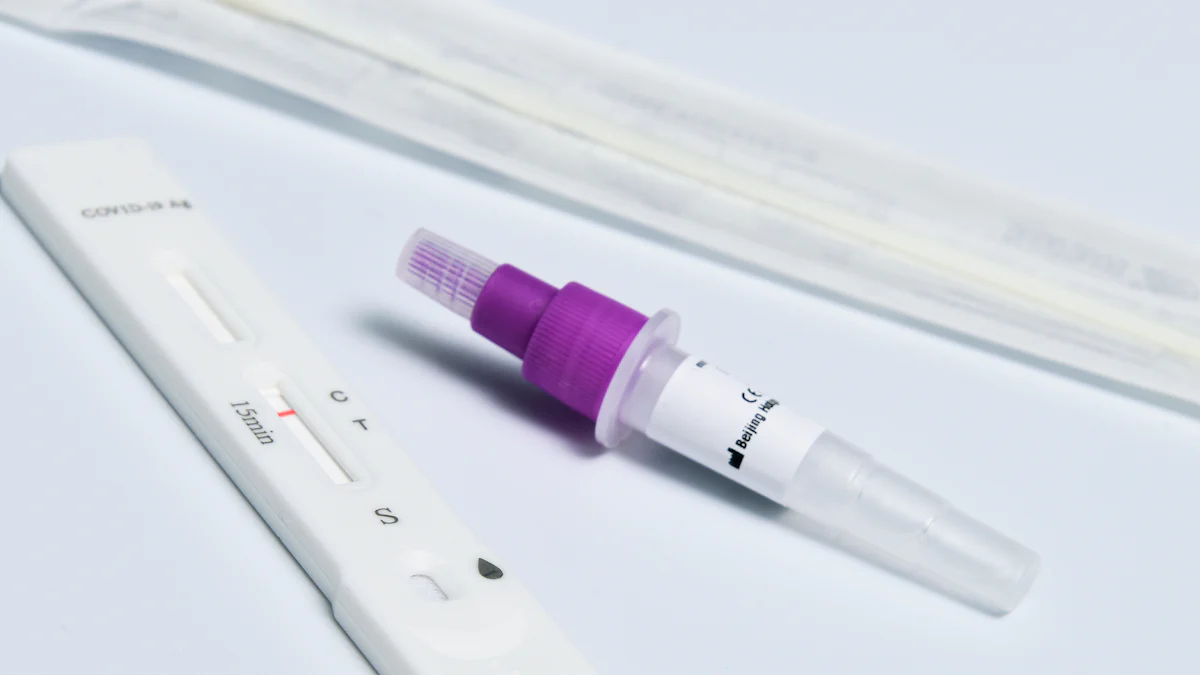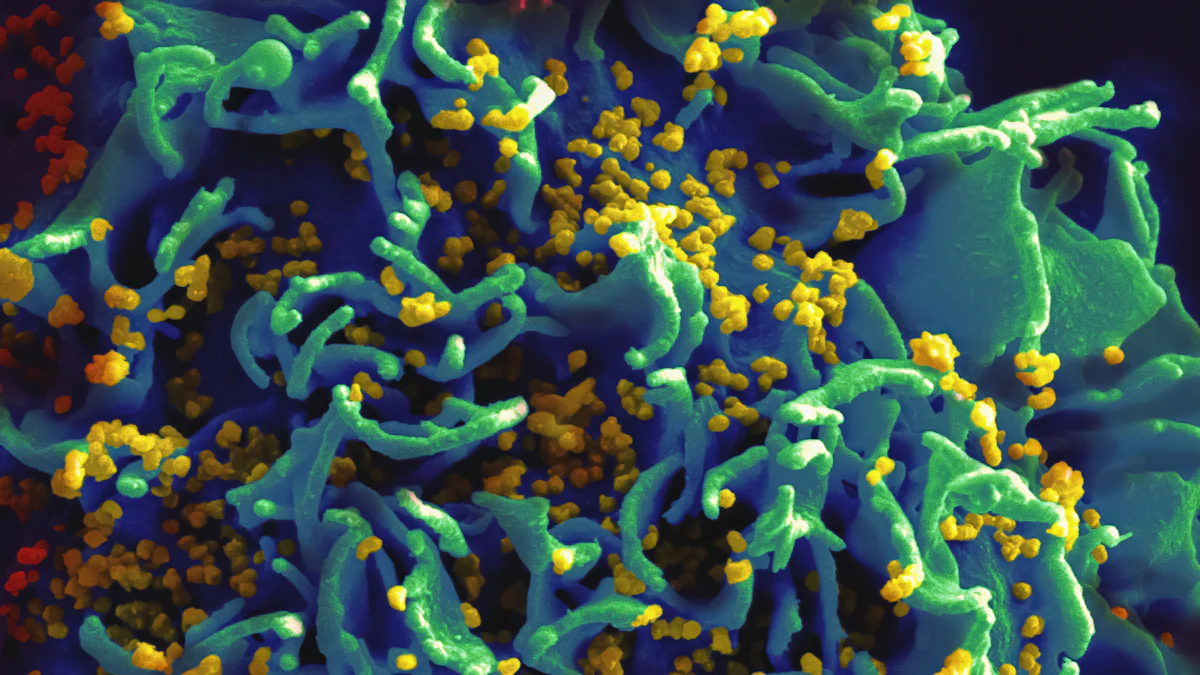
A Salmonella typhi antigen positive result confirms the presence of antigens from Salmonella typhi bacteria. This finding often indicates typhoid fever, a severe bacterial infection. The Salmonella Typhoid Antigen Rapid Test Kit plays a vital role in detecting these antigens. Understanding this result helps healthcare providers initiate timely treatment and prevent complications.
Key Takeaways
- A positive Salmonella typhi antigen test shows typhoid fever is present. It needs quick medical care.
- Using the Salmonella Typhoid Antigen Rapid Test Kit helps find it early. Early treatment lowers the chance of serious problems.
- Staying clean and getting vaccines are important to stop typhoid fever. These steps help keep everyone healthy.
Diagnostic Process for Salmonella Typhi

What is the Salmonella Typhoid Antigen Rapid Test Kit?
The Salmonella Typhoid Antigen Rapid Test Kit is a diagnostic tool designed to detect antigens associated with Salmonella typhi bacteria. This kit provides a quick and reliable method for identifying typhoid fever. It is widely used in clinical settings due to its efficiency and ease of use. The test kit typically includes a strip or cassette that reacts to the presence of specific antigens in a patient’s blood, serum, or plasma sample. By delivering results within minutes, it enables healthcare providers to make timely decisions regarding treatment.
How does the antigen test detect Salmonella typhi?
The antigen test works by identifying specific proteins, or antigens, produced by Salmonella typhi bacteria. When a sample is applied to the test device, it interacts with antibodies embedded in the kit. If the antigens are present, a visible line or marker appears, indicating a positive result. This process relies on immunochromatographic technology, which ensures high sensitivity and specificity. The Salmonella Typhoid Antigen Rapid Test Kit simplifies this process, making it accessible even in resource-limited settings.
Other diagnostic methods for typhoid fever
While the Salmonella Typhoid Antigen Rapid Test Kit is a popular choice, other diagnostic methods are also available. Blood culture remains the gold standard for confirming typhoid fever, as it directly isolates the bacteria. Widal tests, which measure antibody levels, are another option but may lack accuracy in certain cases. Polymerase Chain Reaction (PCR) tests offer advanced molecular detection but require specialized equipment. Each method has its advantages, and healthcare providers often choose based on the patient’s condition and available resources.
Implications of a Positive Result
What does a positive result mean for your health?
A positive result for Salmonella typhi antigens indicates the presence of the bacteria responsible for typhoid fever. This finding suggests that the individual may have an active infection or has been exposed to the bacteria in the past. Typhoid fever can cause severe symptoms, including high fever, abdominal pain, and fatigue. If left untreated, it may lead to life-threatening complications such as intestinal perforation or systemic infections. A positive result serves as a critical warning, prompting healthcare providers to investigate further and initiate appropriate treatment.
Differentiating between active and past infections
Distinguishing between an active and past infection is essential for accurate diagnosis and treatment. An active infection typically presents with symptoms such as fever, weakness, and gastrointestinal issues. In contrast, a past infection may show no symptoms but still yield a positive antigen test result due to residual antigens in the bloodstream. Additional diagnostic methods, such as blood cultures or antibody tests, help confirm whether the infection is ongoing. The Salmonella Typhoid Antigen Rapid Test Kit provides a quick initial screening, but further tests are often necessary to determine the infection’s status.
Why early detection is crucial
Early detection of typhoid fever significantly improves treatment outcomes. Identifying the infection in its initial stages allows healthcare providers to prescribe antibiotics before complications arise. Delayed diagnosis increases the risk of severe health issues, prolonged recovery, and potential transmission to others. The Salmonella Typhoid Antigen Rapid Test Kit plays a vital role in facilitating early detection, especially in areas with limited medical resources. Prompt identification and treatment reduce the disease’s impact on individuals and communities.
Managing Typhoid Fever

Recognizing the symptoms of typhoid fever
Typhoid fever presents with a range of symptoms that can vary in severity. Early signs often include a persistent high fever, fatigue, and abdominal discomfort. Patients may also experience headaches, loss of appetite, and constipation or diarrhea. As the illness progresses, symptoms such as a rash of flat, rose-colored spots and an enlarged spleen or liver may develop. Recognizing these symptoms early is critical for initiating prompt medical intervention. Healthcare providers rely on diagnostic tools like the Salmonella Typhoid Antigen Rapid Test Kit to confirm the presence of the infection and guide treatment decisions.
Treatment options for typhoid fever
Effective treatment for typhoid fever typically involves the use of antibiotics to eliminate the Salmonella typhi bacteria. Commonly prescribed antibiotics include ciprofloxacin and azithromycin, which target the infection and reduce symptoms. In severe cases, hospitalization may be necessary to manage complications such as dehydration or intestinal perforation. Supportive care, including fluid replacement and a nutrient-rich diet, plays a vital role in recovery. Healthcare professionals emphasize the importance of completing the full course of antibiotics to prevent antibiotic resistance and ensure complete eradication of the bacteria.
Preventive measures to avoid infection
Preventing typhoid fever requires a combination of personal hygiene practices and public health measures. Individuals should wash their hands thoroughly before eating and after using the restroom. Consuming only safe, treated water and properly cooked food reduces the risk of infection. Vaccination against typhoid fever provides additional protection, especially for those traveling to high-risk areas. Public health initiatives, such as improving sanitation and access to clean water, are essential for reducing the prevalence of the disease in affected communities.
A Salmonella typhi antigen positive result highlights the presence of typhoid fever, demanding immediate medical attention. Early detection ensures effective treatment and prevents severe health risks. Individuals should seek guidance from healthcare professionals for accurate diagnosis, proper treatment, and preventive strategies. Timely action safeguards health and reduces the spread of this serious bacterial infection.
FAQ
What is the difference between antigens and antibodies in typhoid diagnosis?
Antigens are proteins from Salmonella typhi detected during infection. Antibodies are immune responses produced by the body to fight the bacteria.
Can a positive antigen test result be a false positive?
Yes, false positives can occur due to cross-reactivity with other infections. Additional tests, like blood cultures, confirm the diagnosis.
How long does it take to recover from typhoid fever?
Recovery typically takes 2-4 weeks with proper treatment. Severe cases may require longer recovery periods and additional medical care.
Tip: Always consult a healthcare professional for accurate diagnosis and treatment guidance.
Post time: Feb-04-2025